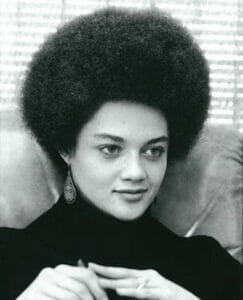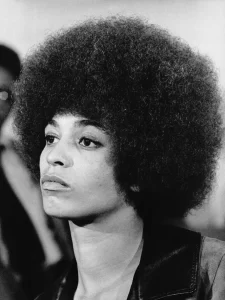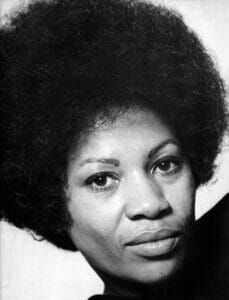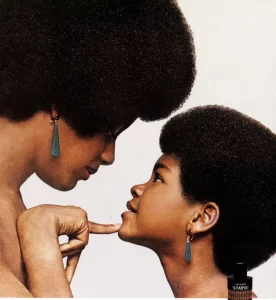The natural hair trend is more than just a style choice – it has its roots in a deep and rich history that has formed the basis of personal, political and activist movements for many years. From Kathleen Cleaver to Toni Morrison, Angela Davis to Maya Angelou, natural hair has been worn as a symbol of pride, strength and defiance. In recent years, the natural hair movement has gained renewed momentum, with more and more women embracing their natural textures and taking a stand against societal norms.
Whether it’s rocking an afro or rocking locs, natural hair is a beautiful statement of self-acceptance and pride. So next time you see someone with natural hair, remember that they’re not just making a fashion choice – they’re carrying on a rich tradition of strength and empowerment.
Around 1966, the African Americans began to identify as Black and strived to eradicate the preconceived judgment that trailed natural Black hair. The movement aimed to change the Eurocentric standards of beauty and instead promote natural black features as beautiful. This was a pivotal moment in history as it marked the beginning of a new era of black pride and self-love.

The natural hair was left rather than straightened and relaxed. The natural Black hair became a symbol of strength and resistance, and it continues to be an important part of Black culture today. As an influence of the Black Power movement, many now see natural Black hair as beautiful, empowering, and defiant.
The natural Black hair has been a source of pride and beauty for African Americans since the days of slavery. In the 60s, during the Black Power movement, natural black hair became a symbol of defiance and self-acceptance. Today, natural black hair is still seen as a sign of strength and confidence. And while it may require more care than other types of hair, natural black hair is ultimately worth the effort. After all, there’s nothing quite like feeling confident and beautiful in your own skin.

At some point, in the midst of black liberation, civil rights movement, Black people began to embrace their natural hair. Most did it as a way of honoring their ancestors and showing solidarity with their roots. According to Kathleen Cleaver, a member of the Black Panther Party, women began to shed the misconception that only white people could be considered beautiful. They stopped straightening their hair and lightening their skin in order to look like their white counterparts. The natural hair and skin colour were seen as beautiful on its own and even white women wanted to join the movement through the use of afro hair wigs.

See also: Benny Harlem Guinness World Record Holder Tallest Afro Hair
In the 70s, when a majority of black people had joined the natural hair trend, it gradually became a point of contention. Law enforcement agencies began to victimize people with afros, arresting and harassing them, sometimes unjustly.

Angela Davis was one of the women who was persecuted and had to go into hiding. However, according to report, the FBI’s portrayal of her as a fugitive affected the conception of natural hair-wearing women as a whole. Due to the widespread belief that all black women with afro were suspected criminals, a lot of them became victims of illegal harassment and arrest by several law enforcement agencies.
During an interview with Kathleen Cleaver on Natural Hair produced by Educational Video Group (Greenwood, IN: Educational Video Group, 1968) she stated: “This brother here, myself and all of us were born with our hair like this, and we just wear it like this because it’s natural, you might say it’s like a new awareness among black people. Their own natural appearance, physical appearance, is beautiful and is pleasing to them. And women want to please men and if men accept it as beautiful then women would do it”.
It was a period of Black Women’s Consciousness and self-worth and celebration of their identity but unfortunately, they started to rely heavily on the pressing comb and chemical relaxers to hide from the persistent stereotype and to avoid been targeted.
In the workplace, black hairstyles were always under scrutiny and often prohibited. From Afros to cornrows to braids, black hair was seen as unprofessional and a symbol of rebellion. Therefore, the natural hair movement began to fade in the 80s. While the natural hair movement was short-lived, it did help to pave the way for Black women to be more accepting of their own hair.
The persecution of people wearing the afro as well as the advent of new permed styles which most women favoured were part of these factors. Today, Black women are once again embracing their natural hair, but it remains to be seen whether this trend will continue to have a lasting effect.










